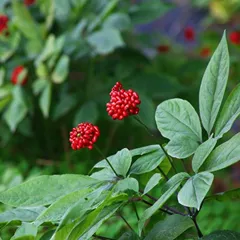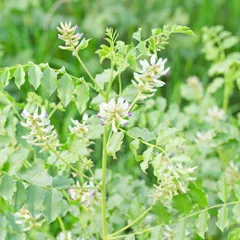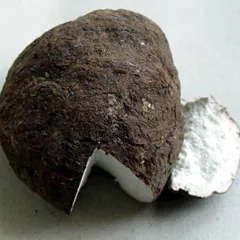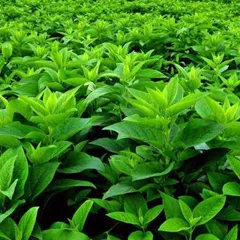Irritable bowel syndrome according to Chinese Medicine
The information provided here is not a replacement for a doctor. You shouldn't use it for the purpose of self-diagnosing or self-medicating but rather so you can have a more informed discussion with a professional TCM practitioner.
Irritable bowel syndrome factsheet
Possible causes and remedies:
Symptoms: Weak voice Loose stools Poor appetite and two other symptoms
Recommended formula: Si Jun Zi Tang
Symptoms: Thirst Dry mouth Dizziness and five other symptoms
Recommended formula: Zeng Ye Tang
In Chinese Medicine, irritable bowel syndrome can be associated with four so-called "patterns of disharmony". Chinese Medicine sees the body as a system, not a sum of isolated parts. A "pattern" is when the system's harmony is disrupted. It is not equivalent to the Western concept of "disease", as a matter of fact here irritable bowel syndrome can be caused by four different patterns.
To understand whether someone's irritable bowel syndrome might be caused by a given pattern, one needs to look for signs and symptoms associated with the pattern beyond what one might typically experience from irritable bowel syndrome alone. For instance when irritable bowel syndrome is caused by the pattern Spleen Qi Deficiency, patients also experience symptoms such as pale complexion, weak voice, poor appetite and loose stools. Similarly, patients with Spleen Qi Deficiency typically exhibit soggy (Ru) or weak (Ruo) pulses as well as a pale tongue.
We've listed below a description of the four patterns associated with irritable bowel syndrome so that you can start to get an understanding of the various possibilities according to Chinese Medicine.
Once identified, patterns are often treated using herbal formulas. Drinking herbal infusions is the most common remedy in Chinese Medicine, together with acupuncture. Here we detail below ten formulas that can help treat the various patterns associated with irritable bowel syndrome, depending on which pattern fits your profile.
The four "patterns of disharmony" associated with irritable bowel syndrome
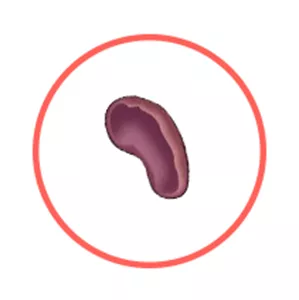
The Spleen is a so-called "Zang" Organ. Learn more about the Spleen in Chinese Medicine
Spleen Qi Deficiency
Pulse type(s): Soggy (Ru), Weak (Ruo)
Tongue color: Pale
Recommended herbal formula: Si Jun Zi Tang
Symptoms: Weak voice Loose stools Poor appetite Pale complexion Weakness in the limbs
Irritable bowel syndrome might be due to Spleen Qi Deficiency if the condition is paired with typical pattern symptoms such as pale complexion, weak voice, poor appetite and loose stools. Similarly, patients with Spleen Qi Deficiency typically exhibit soggy (Ru) or weak (Ruo) pulses as well as a pale tongue.
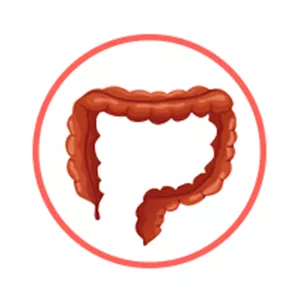
The Large Intestine is a so-called "Fu" Organ. Learn more about the Large Intestine in Chinese Medicine
Dryness in Large Intestine
Pulse type(s): Fine (Xi)
Tongue color: Pale, Red
Recommended herbal formula: Zeng Ye Tang
Symptoms: Thirst Dry mouth Dizziness Dry stools Dry throat Bad breath Constipation Thin body lacking strength
Irritable bowel syndrome might be due to Dryness in Large Intestine if the condition is paired with typical pattern symptoms such as constipation, thirst, dry stools and dry mouth. Similarly, patients with Dryness in Large Intestine typically exhibit fine (Xi) pulses as well as a pale, red tongue.
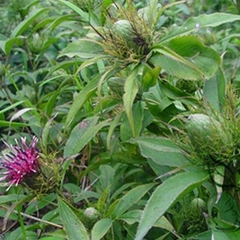
Atractylodes Rhizomes (Bai Zhu) is the key herb for Yue Ju Wan, a formula used for Qi Stagnation
Qi Stagnation
Pulse type(s): Wiry (Xian)
Tongue coating: Thin white coating
Tongue color: Normal (light red)
Recommended herbal formula: Yue Ju Wan
Symptoms: Belching Vomiting Acid reflux Indigestion Poor appetite Fixed pain in the hypochondria Mild coughing with copious sputum Stifling sensation in the chest and abdomen
Irritable bowel syndrome might be due to Qi Stagnation if the condition is paired with typical pattern symptoms such as stifling sensation in the chest and abdomen, fixed pain in the hypochondria, belching and vomiting. Similarly, patients with Qi Stagnation typically exhibit wiry (Xian) pulses as well as a normal (light red) tongue with thin white coating.
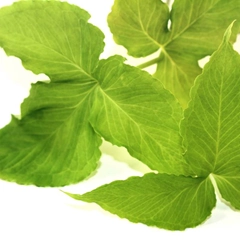
Crow-Dipper Rhizomes (Ban Xia) is the key herb for Ban Xia Hou Pu Tang, a formula used for Qi-Phlegm
Qi-Phlegm
Pulse type(s): Slippery (Hua), Wiry (Xian)
Tongue coating: Thick white coating
Recommended herbal formula: Ban Xia Hou Pu Tang
Symptoms: Difficulty swallowing Stuffiness of chest and diaphragm Feeling of a lump in the throat which comes and goes
Irritable bowel syndrome might be due to Qi-Phlegm if the condition is paired with typical pattern symptoms such as difficulty swallowing, feeling of a lump in the throat which comes and goes and stuffiness of chest and diaphragm. Similarly, patients with Qi-Phlegm typically exhibit slippery (Hua) or wiry (Xian) pulses as well as a tongue with thick white coating.
The ten herbal formulas that might help with irritable bowel syndrome
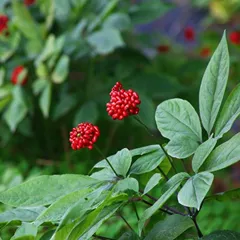
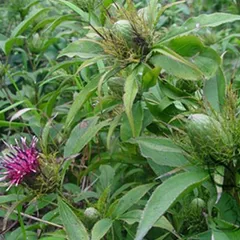
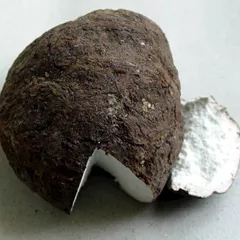
The top herbs in Si Jun Zi Tang are Ginseng (Ren Shen), Atractylodes Rhizomes (Bai Zhu) and Poria-Cocos Mushrooms (Fu Ling)
Si Jun Zi Tang
Source date: 1107 AD
Number of ingredients: 4 herbs
Key actions: Tonifies Qi. Strengthens the Spleen and Stomach.
Why might Si Jun Zi Tang help with irritable bowel syndrome?
Because it is a formula often recommended to help treat Spleen Qi Deficiency, a pattern sometimes associated with irritable bowel syndrome. If it looks like you might suffer from Spleen Qi Deficiency, this formula might help (although please seek confirmation with a professional practitioner beforehand).
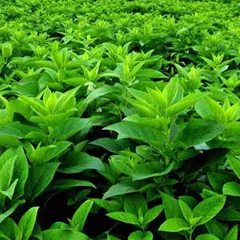
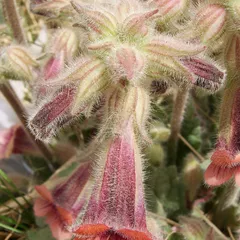

The top herbs in Zeng Ye Tang are Ningpo Figwort Roots (Xuan Shen), Unprepared Rehmannia (Di Huang) and Dwarf Lilyturf Roots (Mai Dong)
Zeng Ye Tang
Source date: 1798 AD
Number of ingredients: 3 herbs
Key actions: Nourishes Yin and Essence. Lubricates Dryness.
Why might Zeng Ye Tang help with irritable bowel syndrome?
Because it is a formula often recommended to help treat Dryness in Large Intestine, a pattern sometimes associated with irritable bowel syndrome. If it looks like you might suffer from Dryness in Large Intestine, this formula might help (although please seek confirmation with a professional practitioner beforehand).

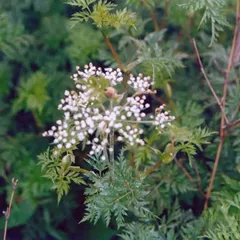

The top herbs in Yue Ju Wan are Atractylodes Rhizomes (Bai Zhu), Szechuan Lovage Roots (Chuan Xiong) and Coco-Grass Rhizomes (Xiang Fu)
Yue Ju Wan
Source date: 1481 AD
Number of ingredients: 5 herbs
Key actions: Promotes the movement of Qi. Releases all types of Stagnation (Qi, Blood, Phlegm, Fire, Food and Dampness).
Why might Yue Ju Wan help with irritable bowel syndrome?
Because it is a formula often recommended to help treat Qi Stagnation, a pattern sometimes associated with irritable bowel syndrome. If it looks like you might suffer from Qi Stagnation, this formula might help (although please seek confirmation with a professional practitioner beforehand).
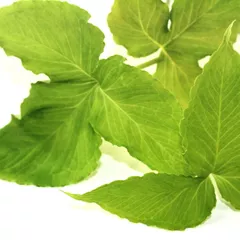
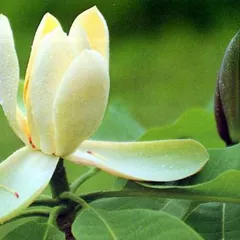

The top herbs in Ban Xia Hou Pu Tang are Crow-Dipper Rhizomes (Ban Xia), Houpu Magnolia Bark (Hou Pu) and Poria-Cocos Mushrooms (Fu Ling)
Ban Xia Hou Pu Tang
Source date: 220 AD
Number of ingredients: 5 herbs
Key actions: Regulates the flow of Qi, treats esophageal spasm. Clears Phlegm.
Why might Ban Xia Hou Pu Tang help with irritable bowel syndrome?
Because it is a formula often recommended to help treat Qi-Phlegm, a pattern sometimes associated with irritable bowel syndrome. If it looks like you might suffer from Qi-Phlegm, this formula might help (although please seek confirmation with a professional practitioner beforehand).
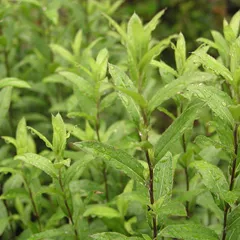

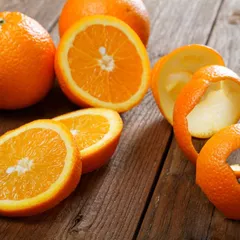
The top herbs in Ping Wei San are Black Atractylodes Rhizomes (Cang Zhu), Houpu Magnolia Bark (Hou Pu) and Tangerine Peel (Chen Pi)
Ping Wei San
Source date: 1051 AD
Number of ingredients: 4 herbs
Key actions: Dries Dampness. Improves the Spleen's transportive function. Promotes the movement of Qi. Harmonizes the Stomach.
Why might Ping Wei San help with irritable bowel syndrome?
Because it is a formula often recommended to help treat , a pattern sometimes associated with irritable bowel syndrome. If it looks like you might suffer from , this formula might help (although please seek confirmation with a professional practitioner beforehand).
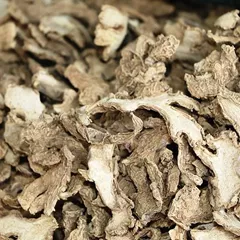


The top herbs in Li Zhong Wan are Dried Ginger (Gan Jiang), Ginseng (Ren Shen) and Atractylodes Rhizomes (Bai Zhu)
Li Zhong Wan
Source date: 220 AD
Number of ingredients: 4 herbs
Key actions: Warms the Middle Burner. Strengthens the Spleen and Stomach.
Why might Li Zhong Wan help with irritable bowel syndrome?
Because it is a formula often recommended to help treat , a pattern sometimes associated with irritable bowel syndrome. If it looks like you might suffer from , this formula might help (although please seek confirmation with a professional practitioner beforehand).



The top herbs in Shen Ling Bai Zhu San are Ginseng (Ren Shen), Atractylodes Rhizomes (Bai Zhu) and Poria-Cocos Mushrooms (Fu Ling)
Shen Ling Bai Zhu San
Source date: 1107 AD
Number of ingredients: 10 herbs
Key actions: Augments the Qi. Strengthens the Spleen. Leaches out Dampness. Stops diarrhea.
Why might Shen Ling Bai Zhu San help with irritable bowel syndrome?
Because it is a formula often recommended to help treat , a pattern sometimes associated with irritable bowel syndrome. If it looks like you might suffer from , this formula might help (although please seek confirmation with a professional practitioner beforehand).
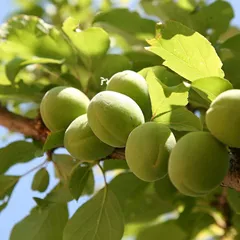
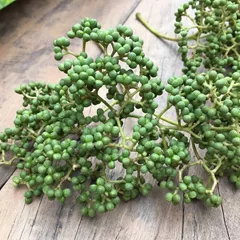
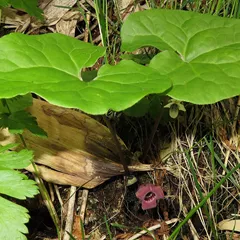
The top herbs in Wu Mei Wan are Chinese Plums (Wu Mei), Sichuan Pepper (Hua Jiao) and Wild Ginger (Xi Xin)
Wu Mei Wan
Source date: 220 AD
Number of ingredients: 9 herbs
Key actions: Warms the Organs. Drains Heat. Calms roundworms. Drains the Liver. Calms the Stomach.
Why might Wu Mei Wan help with irritable bowel syndrome?
Because it is a formula often recommended to help treat , a pattern sometimes associated with irritable bowel syndrome. If it looks like you might suffer from , this formula might help (although please seek confirmation with a professional practitioner beforehand).
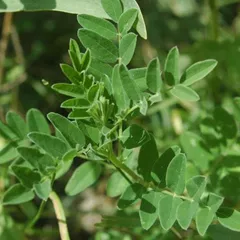
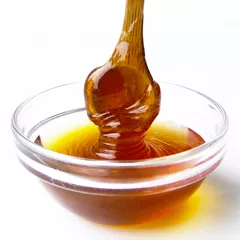
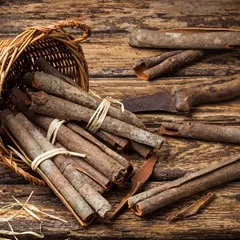
The top herbs in Huang Qi Jian Zhong Tang are Milkvetch Roots (Huang Qi), Maltose (Yi Tang) and Cinnamon Bark (Rou Gui)
Huang Qi Jian Zhong Tang
Source date: 220 AD
Number of ingredients: 7 herbs
Key actions: Warms and tonifies the Middle Burner (Spleen and Stomach). Tonifies Qi. Relieves spasmodic pain.
Why might Huang Qi Jian Zhong Tang help with irritable bowel syndrome?
Because it is a formula often recommended to help treat , a pattern sometimes associated with irritable bowel syndrome. If it looks like you might suffer from , this formula might help (although please seek confirmation with a professional practitioner beforehand).
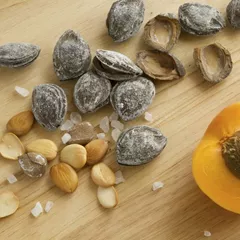
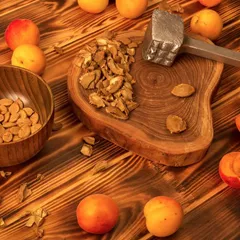
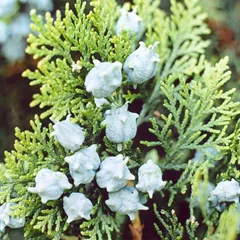
The top herbs in Wu Ren Wan are Apricot Seeds (Xing Ren), Peach Kernels (Tao Ren) and Biota Seeds (Bai Zi Ren)
Wu Ren Wan
Source date: 1345 AD
Number of ingredients: 7 herbs
Key actions: Moistens the Intestines. Unblocks the movement of Stool.
Why might Wu Ren Wan help with irritable bowel syndrome?
Because it is a formula often recommended to help treat , a pattern sometimes associated with irritable bowel syndrome. If it looks like you might suffer from , this formula might help (although please seek confirmation with a professional practitioner beforehand).
Symptoms related to irritable bowel syndrome
Poor appetite Pale complexion Weak voice Loose stools Weakness in the limbs Constipation Thirst Dry stools Dry mouth Dry throat

